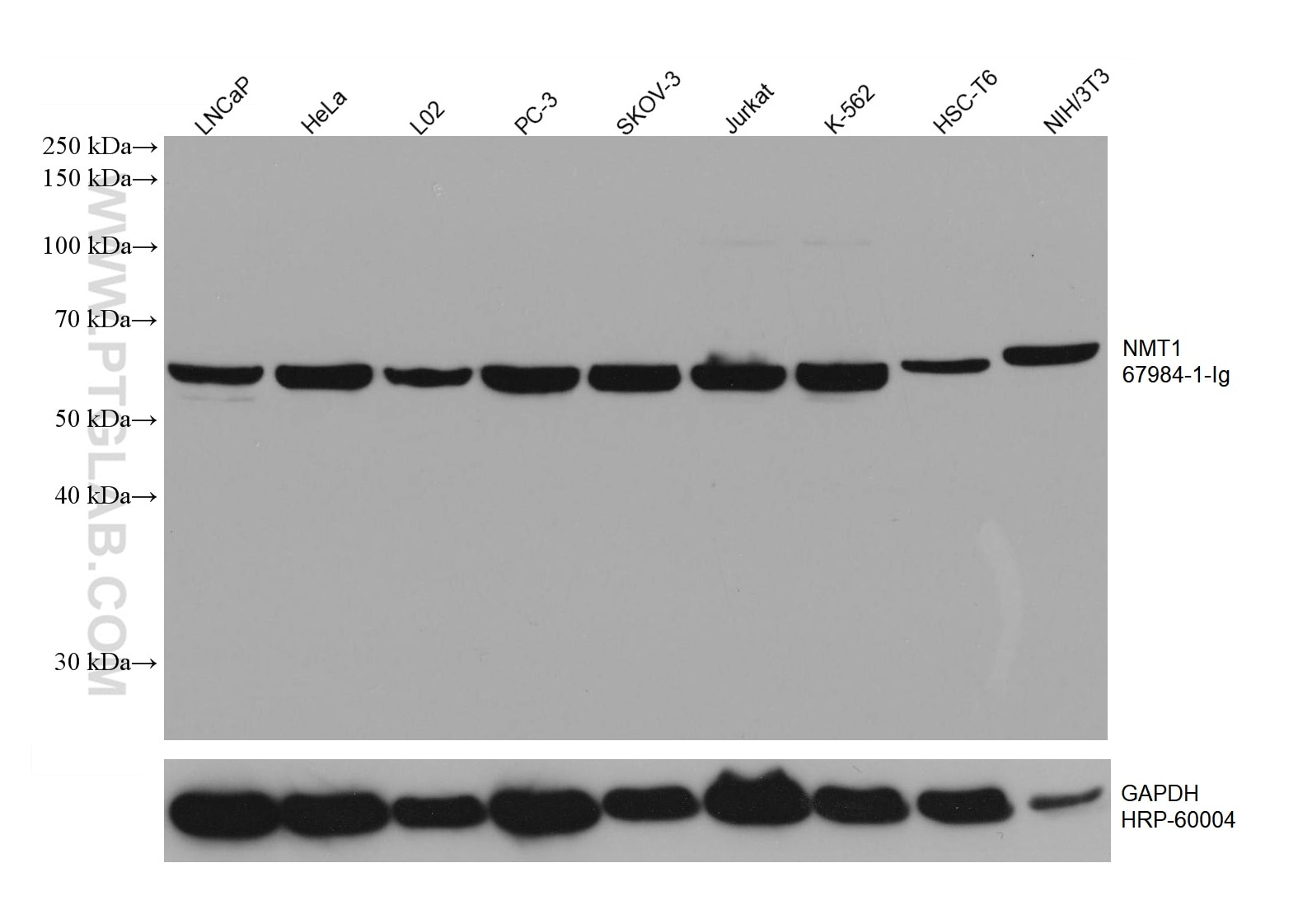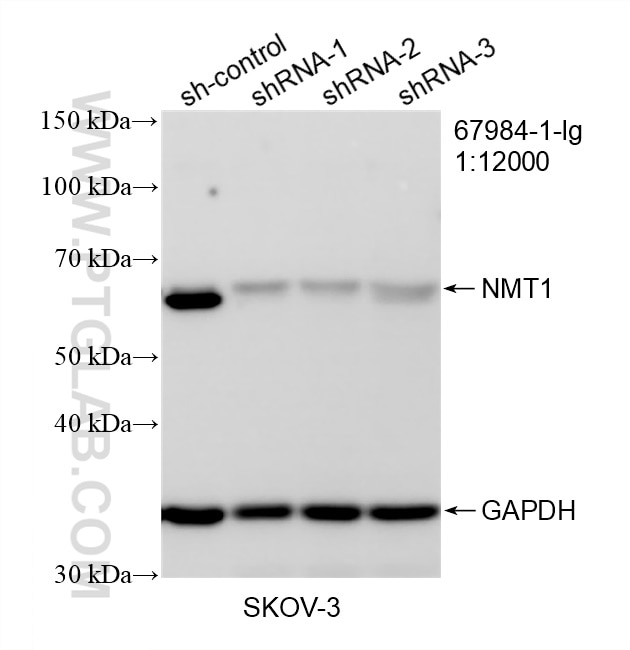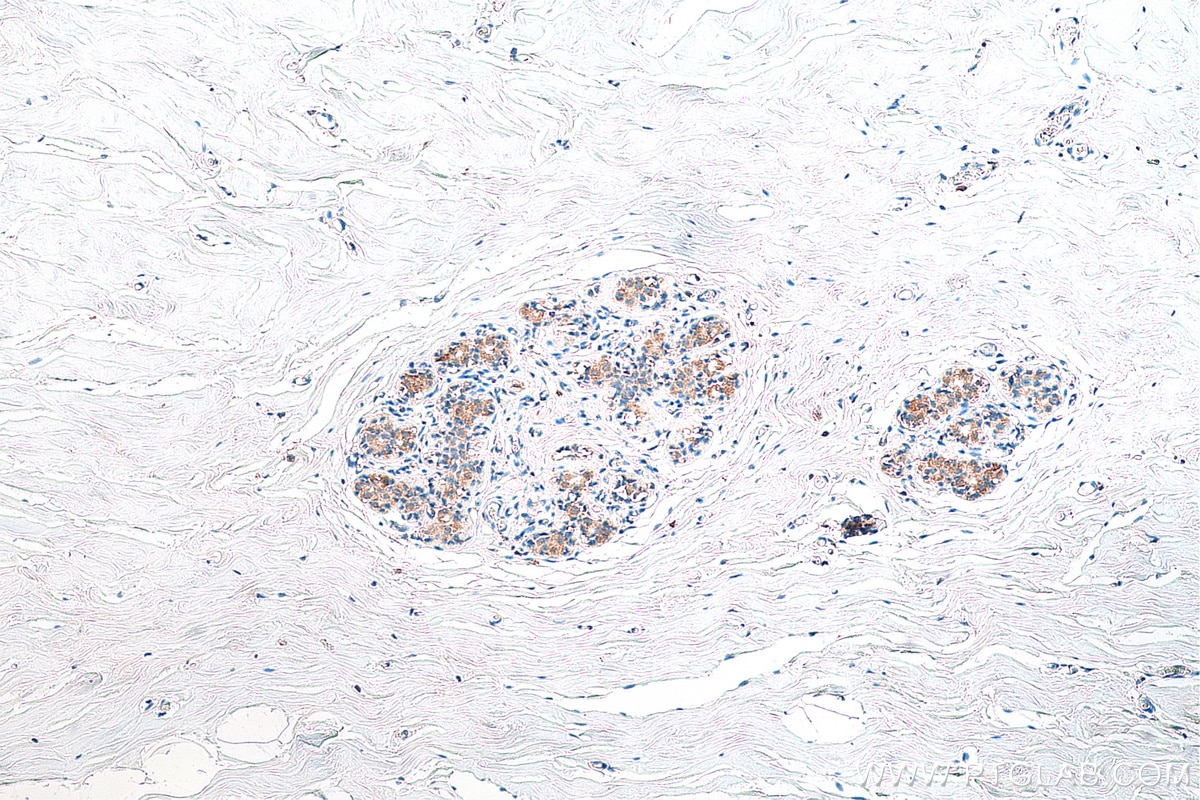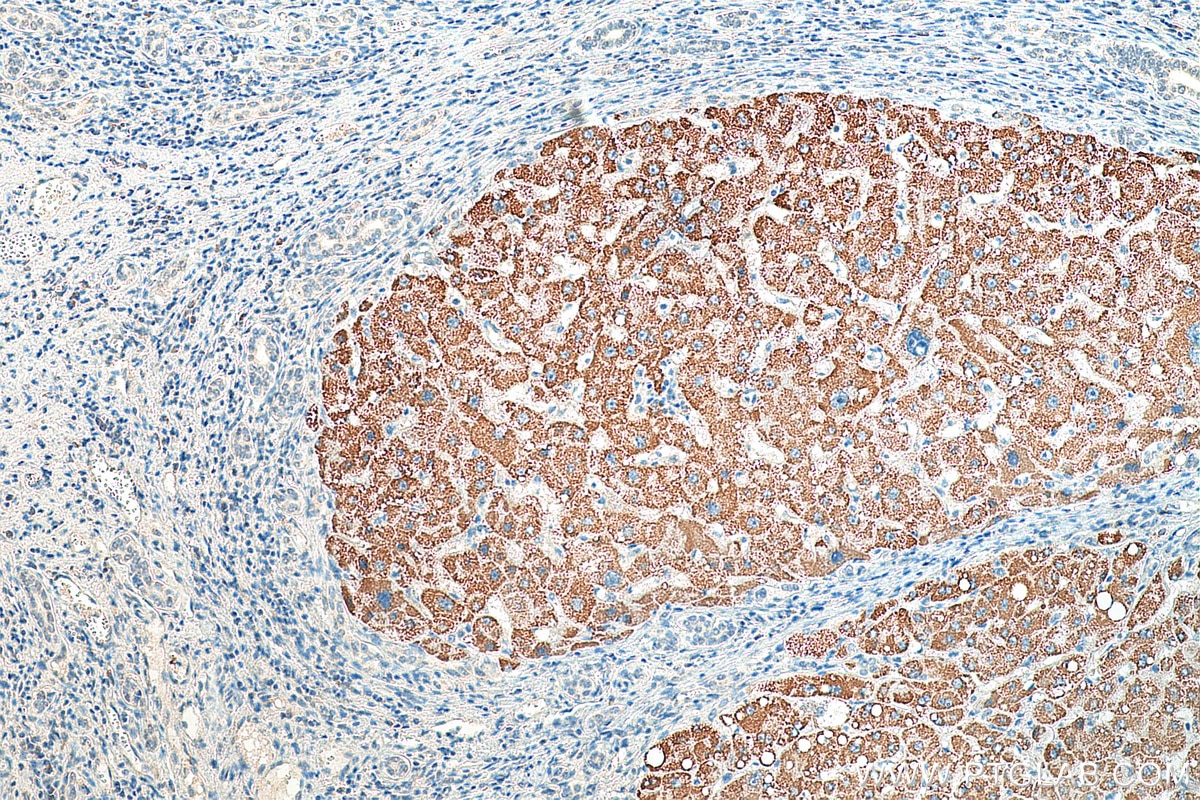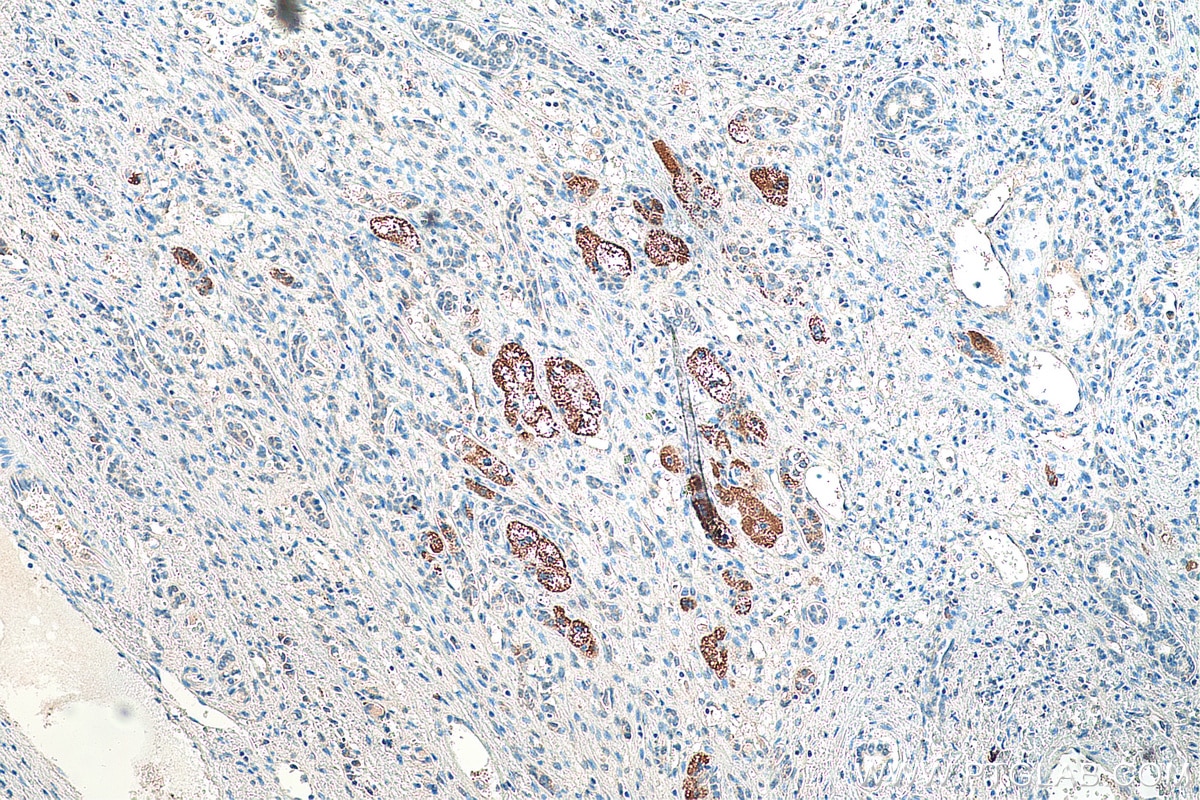- Phare
- Validé par KD/KO
Anticorps Monoclonal anti-NMT1
NMT1 Monoclonal Antibody for WB, IHC, ELISA
Hôte / Isotype
Mouse / IgG1
Réactivité testée
Humain, rat, souris
Applications
WB, IHC, ELISA
Conjugaison
Non conjugué
CloneNo.
2D9B9
N° de cat : 67984-1-Ig
Synonymes
Galerie de données de validation
Applications testées
| Résultats positifs en WB | cellules LNCaP, cellules HeLa, cellules HSC-T6, cellules Jurkat, cellules K-562, cellules L02, cellules NIH/3T3, cellules PC-3, cellules SKOV-3 |
| Résultats positifs en IHC | tissu de cancer du sein humain, tissu de cancer du foie humain il est suggéré de démasquer l'antigène avec un tampon de TE buffer pH 9.0; (*) À défaut, 'le démasquage de l'antigène peut être 'effectué avec un tampon citrate pH 6,0. |
Dilution recommandée
| Application | Dilution |
|---|---|
| Western Blot (WB) | WB : 1:5000-1:50000 |
| Immunohistochimie (IHC) | IHC : 1:500-1:2000 |
| It is recommended that this reagent should be titrated in each testing system to obtain optimal results. | |
| Sample-dependent, check data in validation data gallery | |
Applications publiées
| WB | See 1 publications below |
Informations sur le produit
67984-1-Ig cible NMT1 dans les applications de WB, IHC, ELISA et montre une réactivité avec des échantillons Humain, rat, souris
| Réactivité | Humain, rat, souris |
| Réactivité citée | Humain |
| Hôte / Isotype | Mouse / IgG1 |
| Clonalité | Monoclonal |
| Type | Anticorps |
| Immunogène | NMT1 Protéine recombinante Ag20541 |
| Nom complet | N-myristoyltransferase 1 |
| Masse moléculaire calculée | 496 aa, 57 kDa |
| Poids moléculaire observé | 50-60 kDa |
| Numéro d’acquisition GenBank | BC006569 |
| Symbole du gène | NMT1 |
| Identification du gène (NCBI) | 4836 |
| Conjugaison | Non conjugué |
| Forme | Liquide |
| Méthode de purification | Purification par protéine G |
| Tampon de stockage | PBS with 0.02% sodium azide and 50% glycerol |
| Conditions de stockage | Stocker à -20°C. Stable pendant un an après l'expédition. L'aliquotage n'est pas nécessaire pour le stockage à -20oC Les 20ul contiennent 0,1% de BSA. |
Informations générales
NMT1 is a N-myristoyltransferase responsible for the transfer of myristate from CoA to an amino-terminal glycine of many eukaryotic proteins, which facilitates the targeting of proteins to membrane surfaces and is essential for viability of the organism. Insertional mutagenesis of the Nmt1 gene in Saccharomyces cerevisiae causes recessive lethality. Humans and mice possess two distinct but structurally similar enzymes, NMT1 and NMT2, ubiquitously expressed in most human and mouse tissues. Western analysis revealed that there are 4 isoforms of NMT1 with apparent molecular masses ranging from 49 to 68 kDa. In cell fractionation studies, the 68-kDa NMT1 isoform and NMT2 were present in both membrane and cytoplasmic fractions, while the smaller NMT1 isoforms were predominantly cytoplasmic.
Protocole
| Product Specific Protocols | |
|---|---|
| WB protocol for NMT1 antibody 67984-1-Ig | Download protocol |
| IHC protocol for NMT1 antibody 67984-1-Ig | Download protocol |
| Standard Protocols | |
|---|---|
| Click here to view our Standard Protocols |
